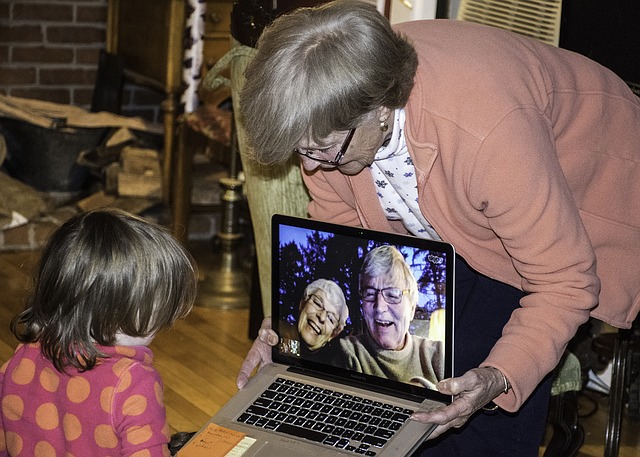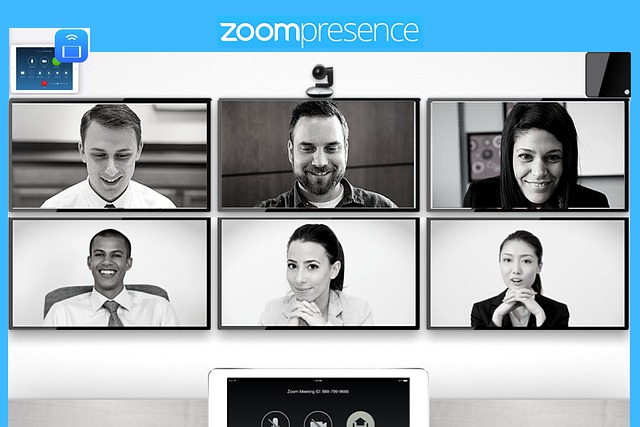
The world is witnessing a drastic change in our practices and procedures, not only in how we do things on a personal level but in every aspect, including business, mainly relating to rules of interaction and engagement.
That has come about due to the global pandemic creating social distancing, self-quarantine, and working from home. Everyone is forced to either bring their job duties home, if that’s a possibility, or find a new way to earn a living from the safety of the home environment.
In the nearly fourteen odd months that each person has been under these restrictions, most have adapted as well as possible to inventive ways of communicating and conducting business. Some of that leaked over from the creative ways most found for speaking with and seeing friends and family in the virtual context.
Now, everything is happening online. Everyone of every age is becoming acquainted with virtual happenings, whether it be enjoying a church session, having a business meeting, attending a trade show, nearly any kind of virtual event you could imagine. Open for the new norm in planning functions.
These take considerable planning; it’s not as simple as merely stringing together your Zoom connections. Still, the benefits like significantly more leads, simplified access, a decrease in expenses, and enhanced networking, but most importantly maintaining safety protocols seem to be making the experiences worthwhile, with some in specific scenarios preferring the new methods. But how do you make the experience valuable for the guests and still attain the maximum in revenue? Let’s check out some ideas.

Hints For A Virtual Event With Engaged Attendees And Soaring Revenue
Most communication today is virtual, whether personal or business-related. That’s primarily due to the global pandemic that swept the world approximately 14 months ago, rendering the populous housebound. During that time, anyone with a device and the internet learned to speak with the outside world via apps. That began to carry over into social situations and events like church, school, and business.
Many individuals with the capability to bring their jobs home were made remote workers while others were left to find remote work. Company leaders began to hold conferences and staff meetings with online connections. The world became and is still virtual. Some are beginning to prefer the new methods in specific scenarios, and some are waiting for things to go back.
Fortunately, there are a multitude of benefits to holding online virtual events by Fusion Events, particularly for businesses. Some people see fewer expenses, greater opportunities for networking, higher revenue, and so much more. But how do you make the experience engaging and valuable for your guests? Let’s look at some ideas.
** The Target Demographic
In any scenario, regardless of what type of event, you need to know who the audience is that you will be addressing. Without that information, there’s no possible way to prepare.
A key to a startup’s success is the marketing scheme. If you market effectively, there will be a line around the block waiting to get in on an opening day. For those who don’t take the time to learn their consumer group, you can’t market, and that means you won’t be visible with little likelihood for outstanding attendance, if any.
Suppose you know anything about business or planning events. In that case, you know that you have to develop that “buyer’s persona” initially to narrow down who you’re preparing for so that you can manipulate your content to suit that person. Each individual needs to feel like you’re speaking to them specifically. Follow this outline:
- Who do you want to see at your event?
- What obstacles does this group deal with on a day-to-day basis?
- Where does the audience come from? Is it a private consumer group event, or are you catering to the professional community?
- Do these individuals have goals, and what do you hope for the ideal attendee?
** Designate Achievable Goals For The Event
Achievable goals equate to knowing the audience. This needs to be something that you believe you can achieve as the organizer. Having an understanding of what you want to accomplish will guide the show. For example, you need first to define its type, whether it be a trade show. That platform would look wholly unique from the setup for business executives to congregate.
It would help if you then determine what it would look like to accomplish that goal, whether it means developing a brand’s recognition or generating revenue from ticket sales. You might also be working on a cause with a charity with hopes of raising awareness and gaining donations. If you know where you want to end up, you can develop a guideline on how to get to that end. Go to https://www.creativebloq.com/advice/virtual-event-tips/ for guidance on how to host a virtual function.
** Build The Platform
You might be facing a genuinely uninteresting subject with a need to spin it somehow so that it appears engaging on the surface so that people want to attend.
The topic might be something along the lines of “Tips On How To Watch Paint Dry Productively.” Many people attend webinars or conferences with the hopes of learning something new. This kind of subject can go one of two ways.
People will either be inquisitive to see what you could possibly have to say or flip past it. Since you understand your target group and have an idea of your goal, your responsibility is to think of different angles for sessions you can take to provide helpful information within that subject that would be of value to the group. It’s essential to relate tips that go along with the theme directly.
The ideas shouldn’t be broad, requiring volumes of explanation but relatively concise like perhaps “Tips On Applying A Coat Of Paint So That It Dries Fast.” But make sure you’re not insulting the intelligence of more seasoned professionals. Remember your audience.

** Aligning A Virtual Team
In real-time, there is a little bit more leniency with delays, whether the organizers are having an issue, presenters might be running behind, some attendees might not show up on time, and the group as a whole decides to wait. In virtual terms, people are more likely to log out.
It’s critical to develop a team in the same capacity as you would for a traditional event. One or two individuals should ensure that everything and everyone is ready to go at the official start time. There is no leniency in this platform like the physical realm.
Having a tech support group allows help for presenters who might face challenges with maneuvering the technology and for any issues that might crop up for attendees. When you provide the registration information for guests, there should be a list of the team members, especially tech support, and documentation needed before the date.
A sufficient number of people need to monitor the chats so that attendees can relay questions to the speaker and responses are prompt. It also assists in minimizing any poor behavior happening throughout.
** Find An Authority On The Subject
Though this is your event, you’re planning, and you have goals that you hope to achieve, you need to do so with talent. You might believe that you are one of the most talented people you know, but the target demographic might not pay to see you (especially if you’re speaking about drying paint).
The ideal situation would be to get an authority on your subject for optimum success. A coveted presenter will give you a greater chance for higher attendance and a better opportunity for success. The effort might be considerable with time-intensive research to find a popular speaker who will appeal to your audience on your specific subject.
The information needs to be authoritative with apparent expertise on the topic but an engaging personality to grab the audience’s attention. Remember your targeted group when you check the varied social media pages to see if they align. That will secure your chances for ticket sales.
** Marketing The Event
Before the event is even close to beginning to take off, it’s essential to begin marketing. The idea is to get people excited about the show, so they “line up” to get in the door. You want a significant turn out which means you start telling people about the function way ahead of time.
It would help if you made specific pages on all social media sites for this particular occasion using explicit content (video is a preference in today’s world). Again, spin the topic to make it enticing with points on how you’ll branch that subject out to provide valuable lessons for each guest.
Make sure to send out invitations via email. These campaigns are among the most strategic tools in marketing. Take lists of guests from past successful presentations and email an invitation introducing the current speaker. Brief details on the topic and learning points are a good idea so that potential attendees can think if the subject is something they would find interesting.
Anyone who enjoyed a previous event will almost always register for another opportunity. Reminders should go out before the date for those registered for the event. You should include suggestions with the reminder on how guests could potentially gain benefits from the keynote speaker’s subject, the varied angles the topic will touch on, and also ways individuals can potentially network.
Included should be registration information, documentation needed before the date, and contact information for team members, particularly tech support.

Preparing For The Day Of The Event
It can prove challenging to select a date and time for the “show,” particularly one that has the potential for having guests globally. In some cases, presenters have one live opportunity, and those who miss that can view a recorded session when it’s convenient for them. The downside is those individuals don’t get the chance to interact in the session.
The best way to meet day, time, schedule preferences is with a preliminary poll of the attendees to get an idea of what those preferences are and see how you can best meet those needs. It’s otherwise virtually impossible to do for a broad audience. It’s more reasonable for you to set a specific schedule for the event, and each person makes concessions to attend.
After the event, encourage further discussion. You can create a blog relating to some of the questions asked of the presenters to have a continued dialog expanding on those topics or perhaps make posts on the social media pages you created to entice feedback and get conversations started in that way.
In this way, you add value to the attendees’ experience, making them remember you when you present in the future and enhancing the chances they will register for those events, plus recommend that other people attend as well.
Final Thought
The world is gradually becoming virtual, if not wholly so, at this point. Still, it doesn’t appear to be entirely awful. In some ways, people interact more via the devices online than what they were doing in person before all the upheaval, a personal observation.
It appears people are more engaged via the internet, especially in business situations; all inhibitions disappear where in-person people are more guarded. That’s probably how virtual events become so successful. People attending a webinar are less intimidated to ask the speaker a question than if they were attending a seminar in real-time.
Regardless of the functions you want to plan, online offers a less expensive way to hold almost any occasion, the ideal way to network with others. Plus, the potential for increases in revenue over those in real-time is genuine since more people are willing to log on to a device to attend something than nearly anyone is anxious to leave the house and go to something. That was obvious when online casinos developed. Should we be this isolated? Probably not. Will it change? We’ll wait and see.
